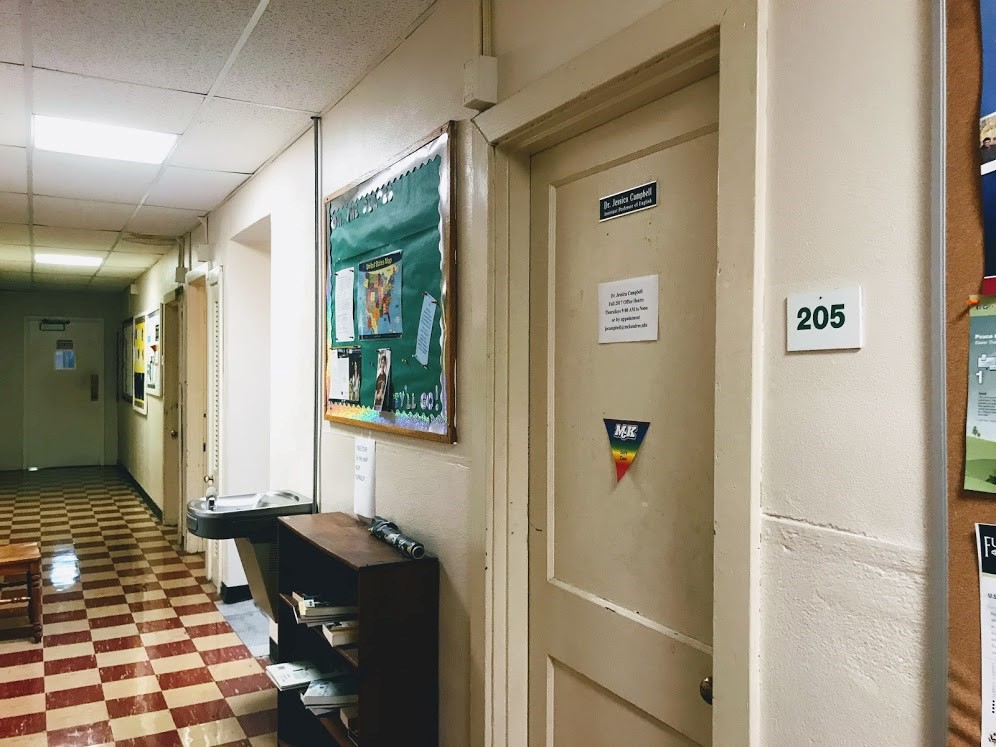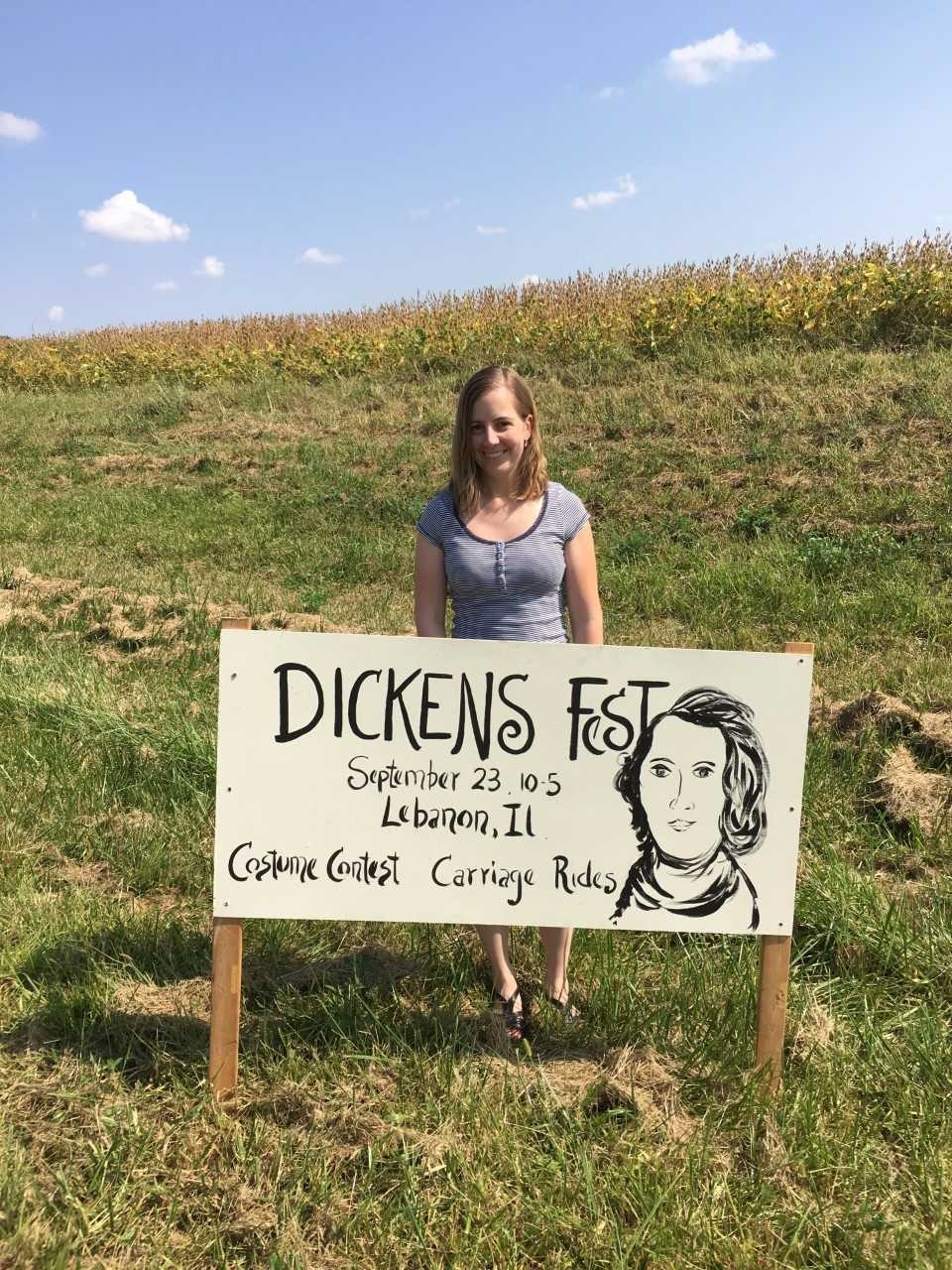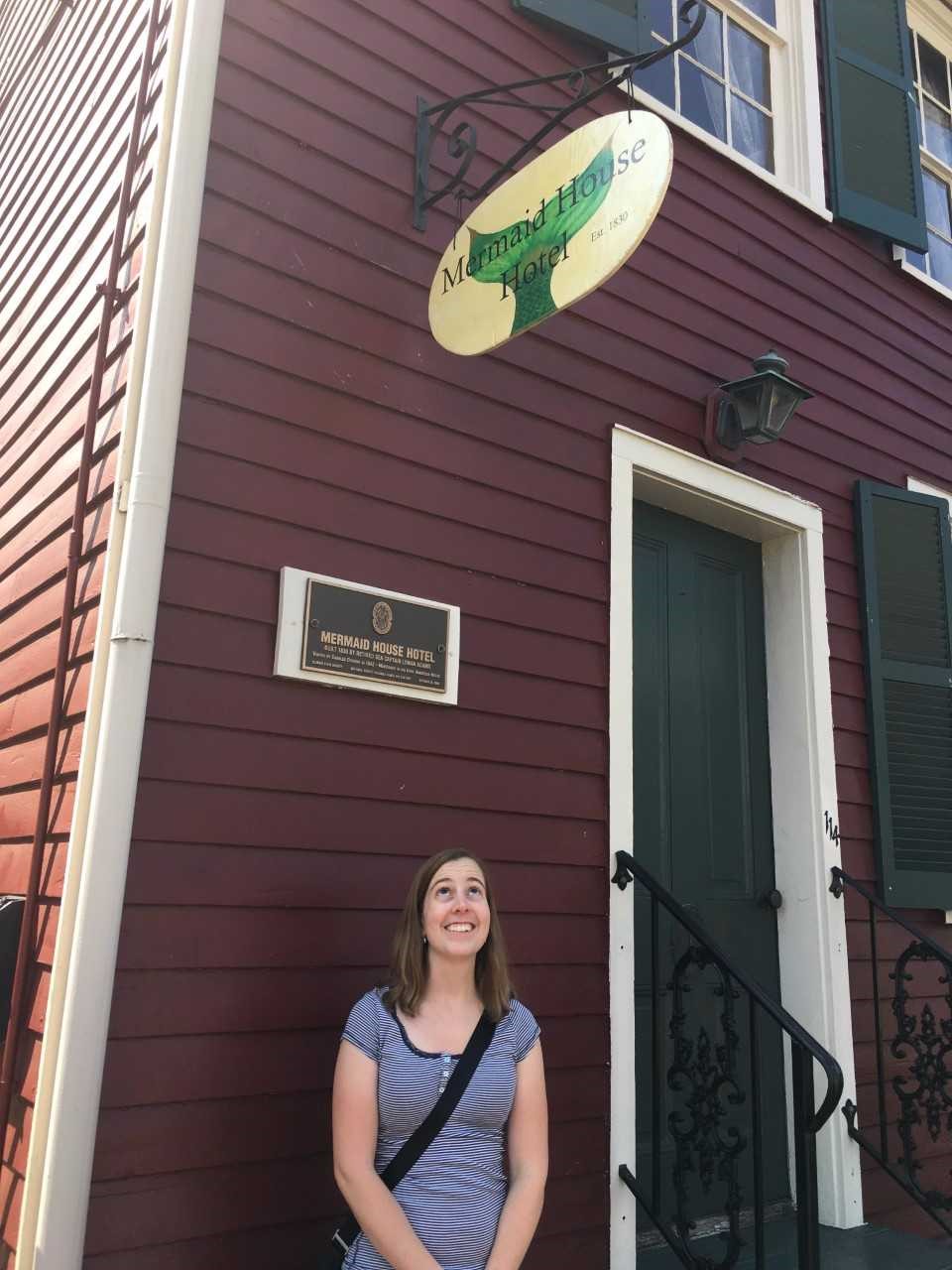
By Sophie Jeffery, Contributing Writer
If you’ve walked down the second floor of Carnegie this year, you may have noticed the change in Carnegie room 205’s appearance; the walls, no longer hidden behind haphazardly stacked books, have been repainted to a blindingly bright white. The desk has been moved from the middle of the room and now sits up against the wall, no longer covered with piles of folders and loose papers. On the wall above the desk, there’s a Periodic Table of Literary Villains, and on one bookshelf, a picture frame with old postcards of Middlebury College. The nameplate on the door has changed too, and now reads: Dr. Jessica Campbell.
Dr. Campbell is McKendree’s new Victorian English Literature expert, taking over for Dr. John Greenfield who retired last year. Along with the cosmetic changes to her office, Dr. Campbell also brings a new focus to the English department: fairy tales. Dr. Campbell’s love for fairy tales began while reading Angela Carter’s retold versions of traditional stories. “I will never run out of fairy tales to read,” she says, “because there’s always a new one or a retelling of an old favorite to read.” While Dr. Campbell appreciates the endless supply of fairy tales to devour, she also possesses a deep love for Victorian literature, and is excited to share this love with McKendree students. She feels it holds its own reward: new interpretations. She loves that she can find something new to discover with each reading of classic pieces of literature. Dr. Campbell is working on a book that examines the Bronte family (“even the brother,” she adds) and their relationship with fairy tales. The book unites her two areas of expertise in that it will explore the fairy tales the family read and how those influenced their own writings.

Photo courtesy of Dr. Campbell taken at Dickens Fest
Dr. Campbell is currently teaching Composition and World Lit II, and enjoys tap dancing in her free time. She has a cat, Becky, who is named after Becky Sharp, a character from William Thackeray’s Vanity Fair. When asked what she’d choose if she could only eat one food forever, she thought for a while, and then finally settled on strawberries… “or bread,” she added quickly. Her dream dinner dates would be Darren Aronofsky, the filmmaker, and Charles Perrault, the French author who first adapted folk tales into what we now know as fairy tales. “They both have such weird minds I’d love to see them together and ask them about their weirdness,” she said with a laugh.
Dr. Campbell is from Salem, Oregon, but travelled across the country to Middlebury College in Vermont for her Undergrad in order to experience an environment different than she was raised in. She headed to University of Washington in Seattle immediately after her undergrad, because “that was the year the economy tanked, so no one really knew what was happening or what to do.” She decided to take advantage of the uncertainty and further pursue her love of literature.
During her last year in Seattle, Dr. Campbell participated in a program through a local community college and taught Myth & Folklore and a Composition class at the prison. Her students ranged in age from 25-70, and some had never graduated from high school. When asked to compare teaching in the prison to teaching in a traditional classroom, Dr. Campbell said, “It was fascinating to work with the students because it was somehow simultaneously a completely different experience but also exactly the same.” Teaching in a prison brought its own challenges, including a consistent sense of uncertainty due to potential lockdowns. Dr. Campbell said she always had to be prepared for class to end early, start late, or even be cancelled altogether. Once class got going though, Dr. Campbell said there was no difference. They were there to learn, and the insight they brought to the materials they discussed was invaluable.
Dr. Campbell believes the prison education programs are absolutely worth it. “I understand why some people say, ‘Why are we wasting our tax dollars educating these criminals?’ However, it’s not just the prisoners that benefit,” she says. Research has shown those who participate in these programs are far less likely to re-offend and subsequently return to prison after release. According to The New York Times, “a prison education program created by Bard College in 2001 boasts a remarkable recidivism rate of 4 percent for inmates who merely participated in the program and 2.5 percent for those who earned degrees in prison.” Keeping released prisoners out of prison benefits the tax payers as well as the individuals, as the Times points out again that “research has shown the public saves $4 to $5 in re-imprisonment costs for every $1 it spends on prison education.”

Photo courtesy of Dr. Campbell
Prior to coming to McKendree, Dr. Campbell taught composition at University of Nevada Reno as a lecturer. “Reno was weird,” she said, laughing about the lack of trees and the odd experience of living in a desert. She’s settling right in at McKendree though, and is especially thankful for the people here. “People are so nice here. It’s always scary jumping into a new environment with new people, but it’s been great working with people who are really fun but can also buckle down and get to work.” She’s also really enjoying living in St. Louis. “I’ve always really liked cities,” she said, “and St. Louis seems like a great place for someone at my stage of life.”
Welcome to McKendree, Dr. Campbell! We’re delighted that you are part of the McKendree community.
Sophie, great job. Thanks for sharing this piece.